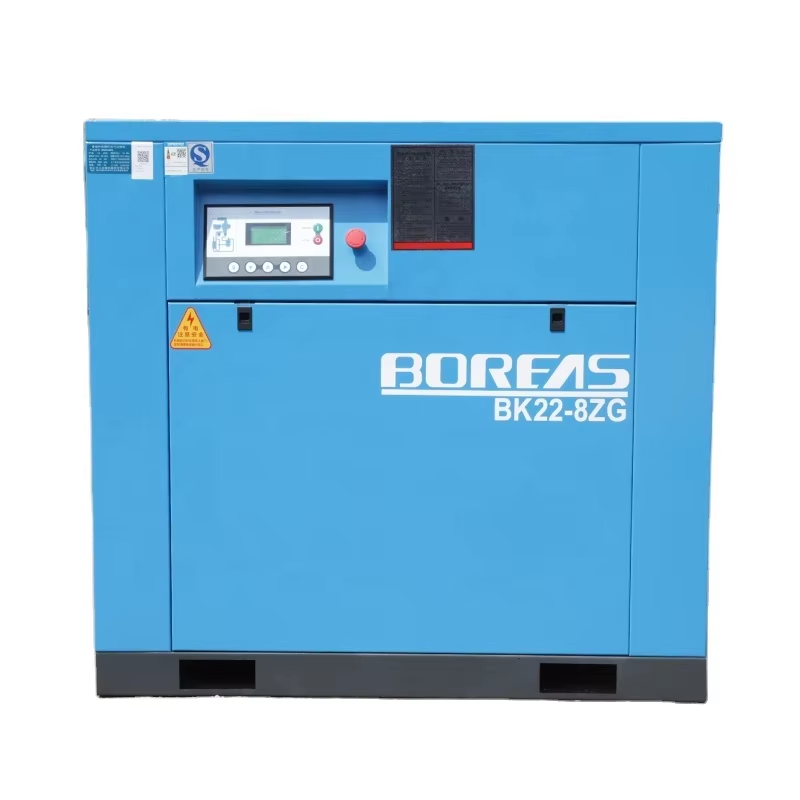Key Benefits of Using an Air Compressor Machine for Productivity
Streamlining Workflow with Faster Operations
Air compressors really help streamline operations while cutting down on those frustrating work stoppages. When they power pneumatic tools properly, entire manufacturing lines move much quicker across different sectors from automotive repair shops to food processing plants. Some research actually shows that compressed air systems can boost production rates somewhere around 30 percent, which makes sense why so many factories keep investing in better compression equipment when trying to ramp up output. Advanced models now come with automated features that make use of smart tech to get tasks done faster without all the manual adjustments. This kind of automation means workers spend less time waiting for tools to kick in and more time actually getting things done throughout their shifts.
Versatility Across Tools and Applications
Air compressors are pretty versatile machines because they work with so many different tools on job sites. Think about all those pneumatic gadgets - nail guns for framing houses, spray guns for auto body shops, impact wrenches in repair garages. The fact that these machines handle such varied tasks shows why they're used everywhere from construction sites to manufacturing plants. Most companies really appreciate how quickly workers can switch between jobs when using compressed air systems. No need to wait for equipment changes or deal with messy cords. Just plug in another tool and keep going. This kind of flexibility means businesses don't have to stockpile specialized equipment for every possible task, saving money while still getting the job done right.
Reducing Labor Costs and Energy Consumption
Air compressors help cut down on labor expenses since they let smaller teams get through the same amount of work. Take manufacturing plants for instance where switching to energy efficient models has slashed power bills by nearly half in many cases. These savings stack up month after month while at the same time cutting down on carbon emissions. For businesses looking to save money without sacrificing green credentials, investing in better compressors makes sense both financially and environmentally. Factories across different sectors are finding this dual benefit especially valuable as energy prices continue their upward trend.
Industrial Air Compressor Applications in High-Impact Sectors
Manufacturing: Powering Assembly Lines and Robotics
Air compressors play a big role in manufacturing plants where they power all sorts of automated equipment and those fancy assembly robots that have become so common these days. Most factories actually rely on compressed air systems somehow or another according to industry stats showing around 70 percent usage across the board. When paired with robotic tech, these compressors do two main things really well - they boost processing speeds while maintaining tight control over how precise each operation needs to be. For companies trying to keep up with customer expectations about product quality and delivery times, getting this balance right between speed and accuracy matters quite a bit in today's competitive market landscape.
Construction: Enabling Pneumatic Tools On-Site
Air compressors play a really important role in construction work, especially when it comes to running those pneumatic tools that workers rely on every day right there at the jobsite. Portable models are super handy because they can generate power even in places far from electrical outlets, something that happens all too often on construction sites. When crews need to drill through concrete, break up old pavement, or tear down structures quickly, these compressed air systems just get the job done faster than waiting for electric tools to charge or set up generators. The fact that they work well no matter what kind of conditions exist makes them pretty much essential equipment for anyone involved in building or demolishing things across different types of construction projects.
Automotive: Precision in Painting and Part Assembly
Air compressors make a real difference in automotive manufacturing, particularly when it comes to things like painting cars and putting parts together. When painters use compressed air instead of traditional methods, they get much smoother finishes without all that wasted paint floating around everywhere. Recent tech improvements have really changed the game too. Modern compressors let workers fine tune both pressure levels and airflow rates, which means shops can tailor their equipment to specific jobs rather than settling for one size fits all solutions. For car manufacturers looking to boost efficiency while maintaining quality standards, these upgraded systems deliver precise results that translate directly into better looking vehicles rolling off assembly lines across the country.
Optimizing Air Compressor Efficiency for Maximum Output
Proper Sizing to Match Operational Demands
Getting the right size air compressor matters a lot if we want to meet our operational needs without wasting energy. Studies show that when compressors aren't sized correctly, they tend to eat up around 30% extra on energy bills because they just aren't working properly. To pick the right one, folks need to know what kind of airflow their system needs, what pressure levels are required, and how often the compressor will actually run throughout the day. All these things affect how long the machine lasts too. The whole point is figuring out exactly what the operation needs before buying something that's either too big or too small. When done right, this approach keeps things running smoothly while cutting down on unnecessary power usage over time.
Pressure Management Strategies for Energy Savings
Good pressure management makes all the difference when it comes to getting the most out of compressors while saving on energy bills. When pressure settings are adjusted properly for what tools actually need, studies show we can cut down energy consumption by around 15% in many industrial settings. Keeping an eye on those pressure levels regularly helps avoid unnecessary strain on equipment, which means compressors last longer before needing replacement or repair. Plus, this kind of maintenance keeps running costs under control over time. Most facilities find that implementing some sort of ongoing pressure assessment system pays off handsomely in the long run, especially during periods of fluctuating demand where energy efficiency becomes even more important for bottom line results.
Leak Detection and Prevention Techniques
Air compressor systems with hidden leaks tend to waste a lot of energy, sometimes using as much as 30% extra power when nobody notices them. That's why checking these systems regularly and using better tech to find those sneaky leaks makes all the difference for efficiency improvements. Regular maintenance work combined with fixing problems before they get bad helps keep things running smoothly while making sure the compressors last longer than they otherwise would. For businesses looking to cut down on their energy bills, investing in good leak detection equipment pays off big time. Plus, sticking to a solid maintenance plan means fewer surprises down the road and keeps those compressors performing at their best for years to come.
Maintenance Best Practices to Sustain Productivity
Routine Inspections for Early Issue Detection
Keeping air compressors in good working order through regular checkups really matters if we want to stay productive and avoid those frustrating shutdowns nobody wants. When we inspect these machines regularly, we catch small problems before they turn into big headaches that cost money and mess up operations. Most experts suggest looking things over at least monthly, maybe even more often depending on how hard the equipment works day to day. Spotting worn parts or warning signs means we can schedule fixes when it makes sense instead of dealing with emergencies. This approach keeps production running smoothly while saving time and resources in the long run.
Filter and Lubrication System Upkeep
Looking after filters and lubrication systems makes all the difference when it comes to how well air compressors run and how long they last. Clean filters matter a lot actually. Some studies indicate that changing them on schedule can make compressors work better by around 15 percent, which means more productive output overall. Lubrication systems need attention too. Regular checks and maintenance help stop problems from building up through friction and heat buildup that might otherwise wreck components before their time. When the lubrication stays in good shape, everything runs smoother naturally. This kind of care pays off in longer equipment life and fewer breakdowns down the road for most industrial settings.
Scheduled Professional Servicing
Getting regular checkups from professionals helps prevent those nasty surprise breakdowns and keeps air compressors running smoothly. Most folks in the know recommend getting these machines serviced at least annually, especially if they're used heavily in industrial settings where downtime costs money. A good technician doesn't just do the basics during maintenance visits. They actually look deeper into how everything works together, spotting problems before they become big headaches. These pros have seen all sorts of issues crop up over time, so they catch things ordinary inspections often overlook. Planning for scheduled maintenance makes sense on multiple levels. It keeps production going without interruptions while saving money in the long run by catching small fixes early instead of dealing with major repairs later down the road.

